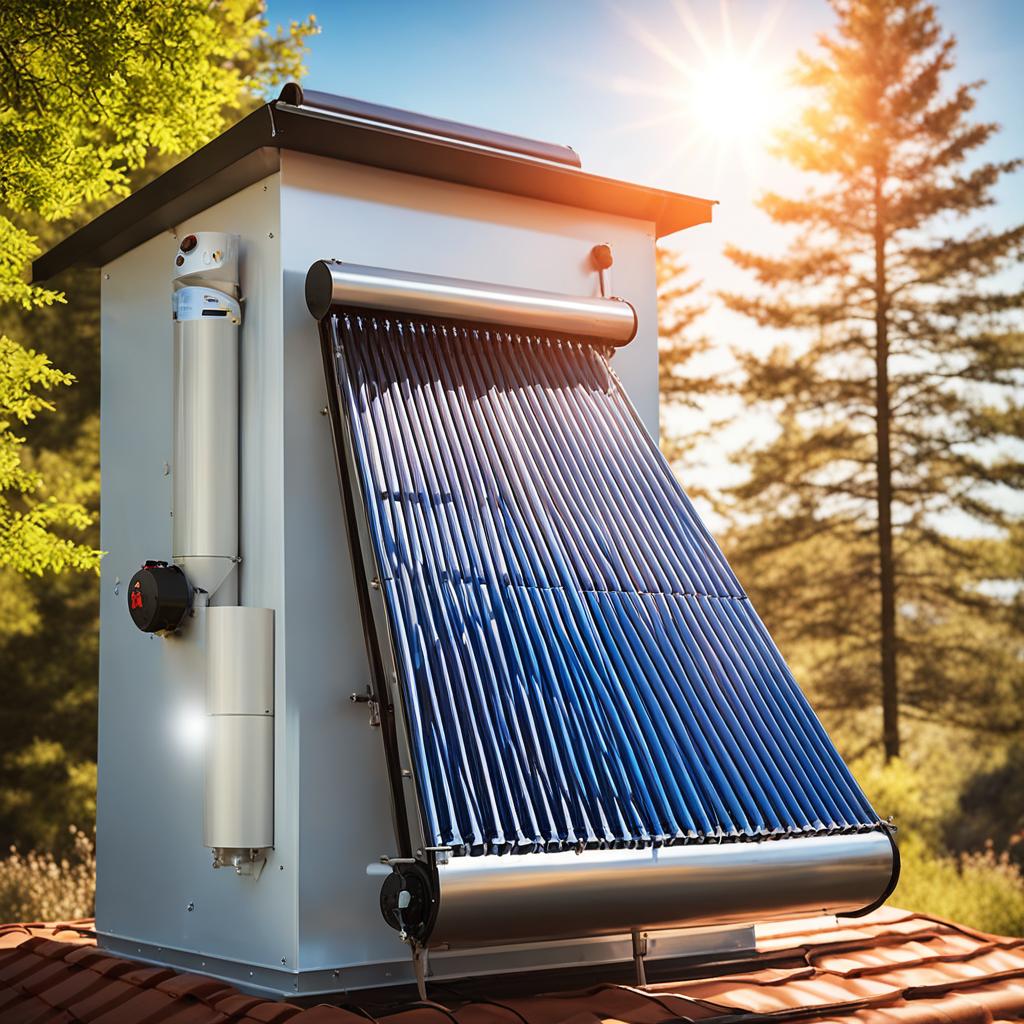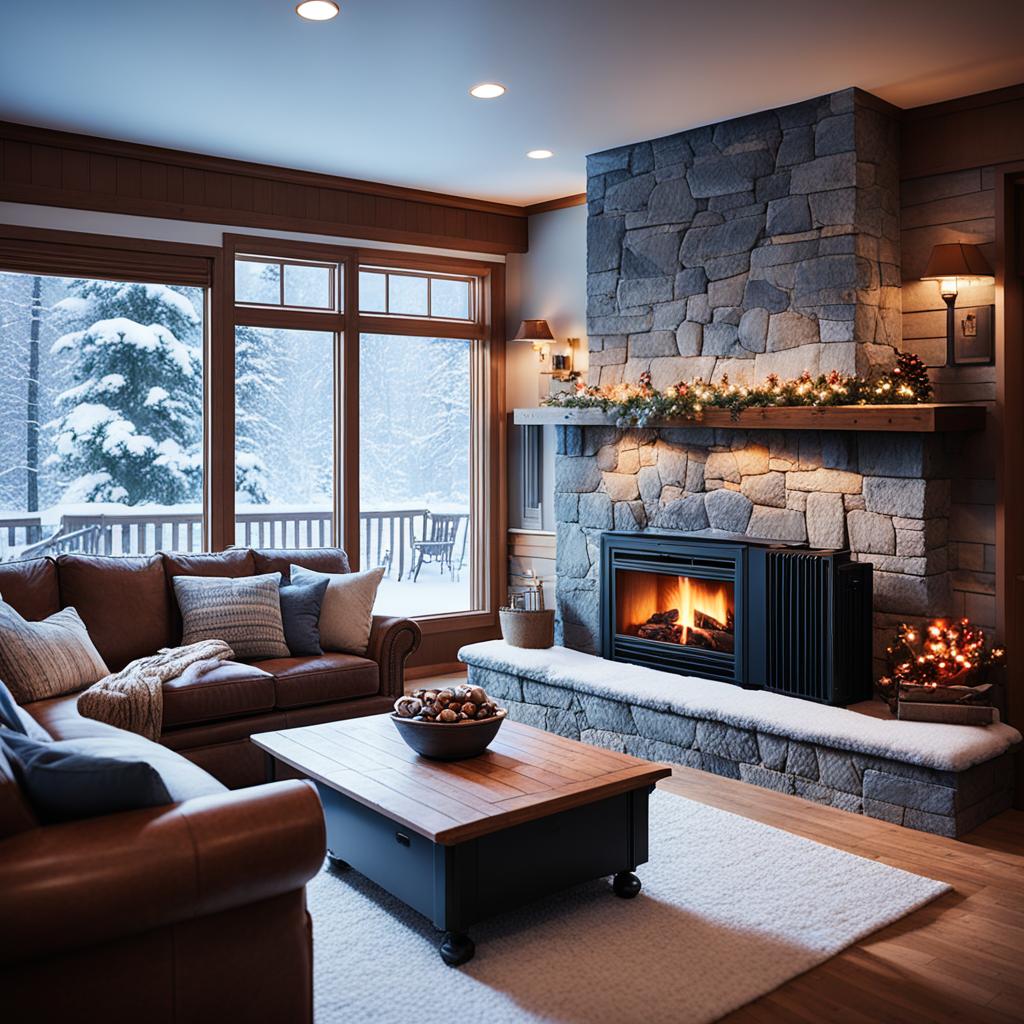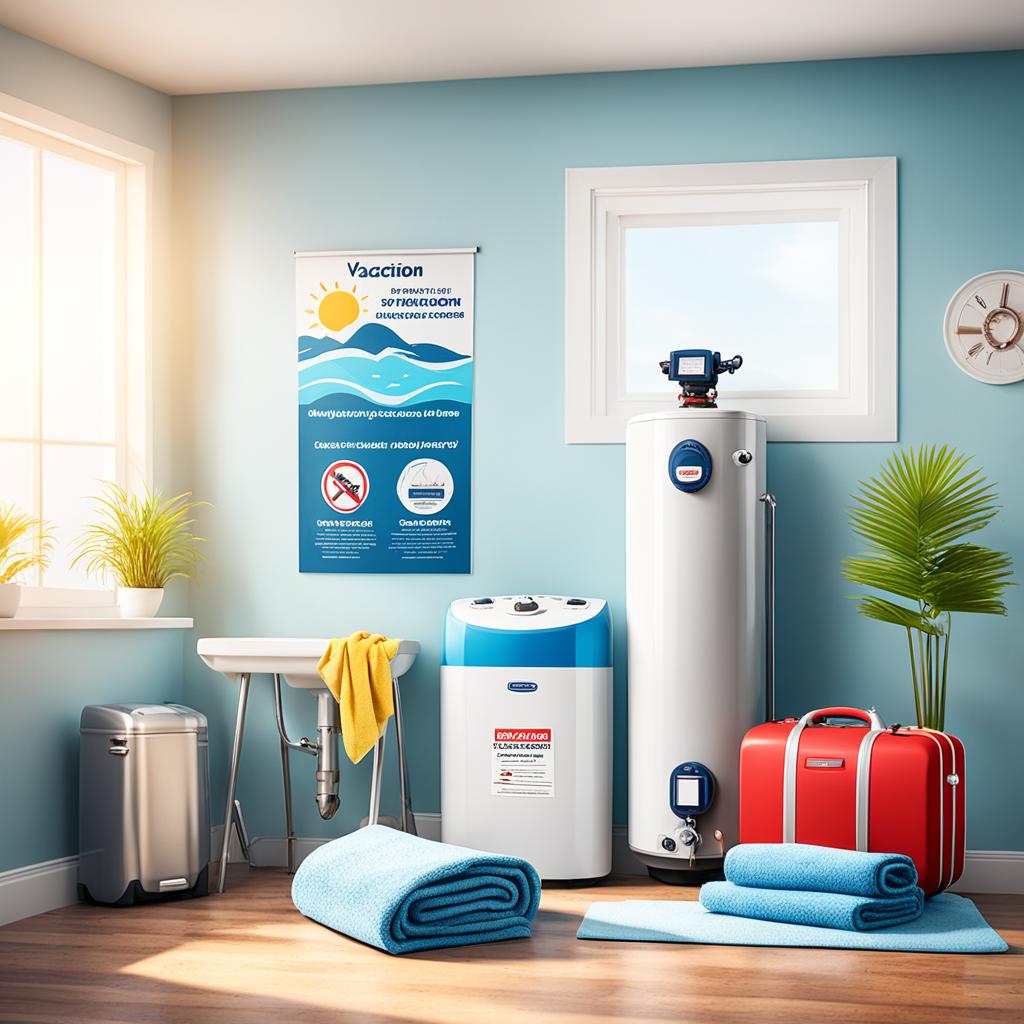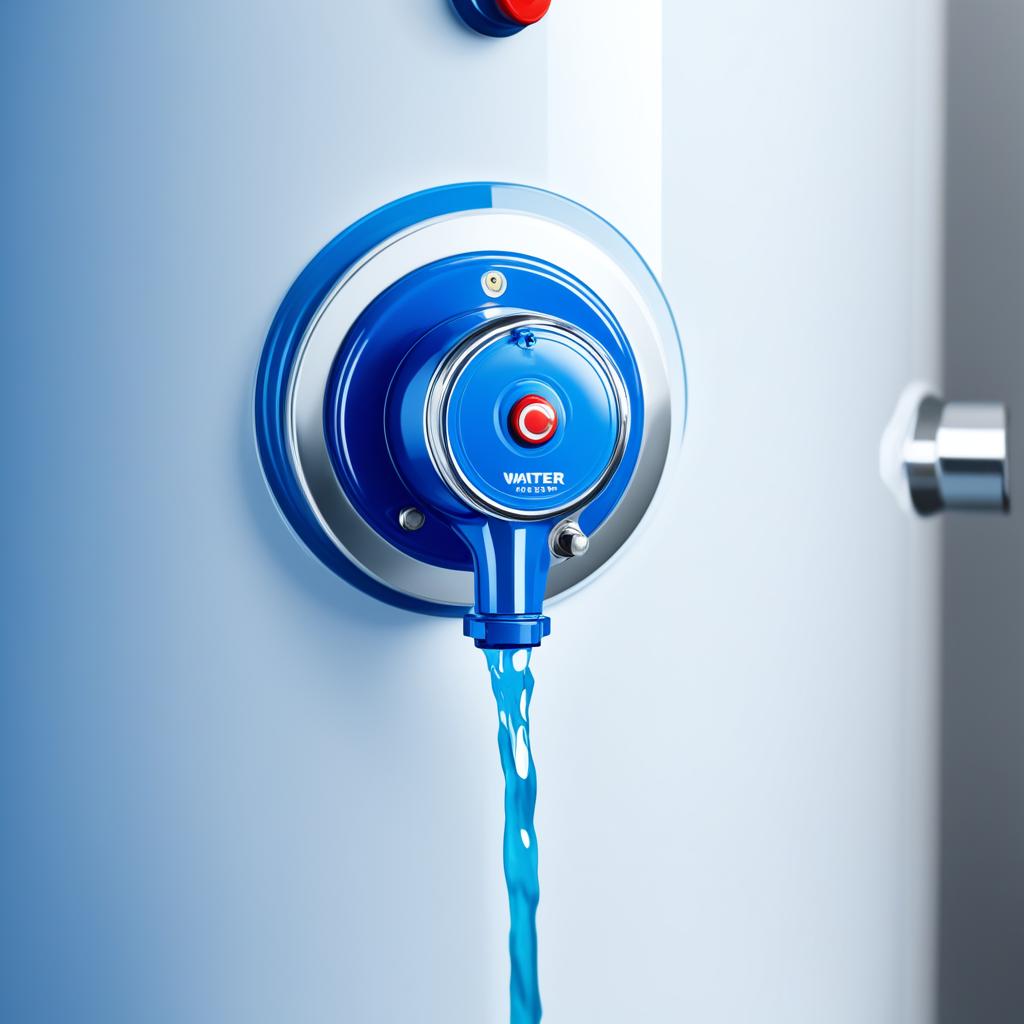When it’s time for a well-deserved vacation, there are countless things to check off your to-do list before you head out the door. But one question lingers in the back of your mind: should you drain your water heater? The answer might surprise you.
Many homeowners believe that draining the water heater before a vacation is a necessary step to prevent issues and save energy. However, the truth is that draining your water heater when on vacation is often unnecessary and may even lead to unexpected problems.
Let’s explore the reasons why leaving your water heater on during your vacation can actually be beneficial. From preventing frozen pipes and avoiding bacterial growth to saving money on reheating, there are compelling reasons to keep your water heater running while you’re away.
In this article, we’ll delve into the different types of water heaters, share seven reasons why you should not turn off your water heater during vacation, provide tips for vacation-proofing your plumbing, and ultimately help you make an informed decision about draining your water heater while you’re away. Get ready to discover what’s best for your home and your peace of mind.
Types of Water Heaters

When it comes to choosing a water heater for your home, there are several options to consider. Each type of water heater operates in a unique way and offers different advantages. Let’s explore the four main types: gas water heaters, electric water heaters, tankless water heaters, and solar water heaters.
Gas Water Heater
A gas water heater is a cost-effective option that uses natural gas or propane to heat water. These heaters are known for their quick recovery time, meaning you won’t run out of hot water, even if multiple appliances are used simultaneously. Gas water heaters are also a reliable choice during power outages, as they don’t rely on electricity to operate. They are generally more expensive to install than electric water heaters but can save you money on energy bills in the long run.
Electric Water Heater
Electric water heaters come in different types, including tank water heaters and heat pump water heaters. Tank water heaters store hot water in a tank and heat it using electric elements. These heaters are commonly found in homes and are relatively easy to install. On the other hand, heat pump water heaters use an electric heat pump to transfer heat from the surrounding air to heat the water. While heat pump water heaters are more energy-efficient, they may have a higher upfront cost.
Tankless Water Heater
A tankless water heater, also known as an on-demand water heater, heats water as it flows through the unit. These heaters don’t store hot water in a tank but rather heat it instantaneously when needed. Tankless water heaters offer the advantage of unlimited hot water supply and can save energy since they only operate when hot water is needed. However, they may have a slower heating time compared to traditional tank water heaters.
Solar Water Heater
A solar water heater harnesses the power of the sun to heat your water. These systems typically consist of solar collectors that absorb sunlight and transfer the heat to the water storage tank. Solar water heaters are highly energy-efficient and can provide significant monthly energy savings. While the upfront cost of installation may be higher, solar water heaters are a sustainable and environmentally friendly option.
Choosing the right type of water heater for your home depends on factors such as energy efficiency, installation cost, and available resources. Consider your specific needs and consult with a professional to determine the best option for you.
7 Reasons Not to Turn off Your Water Heater During Vacation

When you go on vacation, you might be tempted to turn off your water heater to save energy. However, there are several important reasons why you should keep it on. Let’s explore why:
- Prevent frozen pipes: During the winter months, keeping your water heater on helps maintain continuous circulation of warm water, preventing frozen pipes. This ensures that you avoid the costly and inconvenient issues that can arise from frozen plumbing.
- Avoid bacterial growth: Legionella bacteria, which can cause serious illness, thrives in home plumbing systems. By keeping your water heater on, you maintain a temperature that inhibits the growth of bacteria, ensuring the safety and quality of your water.
- Potential disrepair: Turning off an older water heater and then restarting it can sometimes lead to technical issues. By keeping it on, you minimize the risk of encountering problems when you return from vacation.
- Keep house sitters comfortable: If you have house sitters or tenants during your absence, leaving the water heater on ensures their comfort and convenience. They will have access to hot water for showering, washing dishes, and performing daily tasks.
- Save money on reheating: Constantly reheating a large volume of water after returning from vacation can be expensive. By keeping your water heater on, you avoid the need to reheat the entire tank, saving you money on energy bills.
- Won’t forget to turn it back on: Sometimes, in the hustle of returning from vacation, you may forget to turn your water heater back on. By leaving it on during your absence, you eliminate the risk of forgetting this crucial task.
- Save energy with vacation mode: Many modern water heaters have a vacation mode setting, which allows you to conserve energy while still maintaining a minimal level of warmth. Using this mode ensures that your water heater operates efficiently and saves energy during your vacation.
With these compelling reasons in mind, it’s clear that leaving your water heater on during vacation is the best choice. Not only do you prevent frozen pipes and avoid bacterial growth, but you also keep house sitters comfortable, save money on reheating, and eliminate the risk of forgetting to turn it back on. Additionally, modern water heaters offer energy-saving vacation mode settings that maximize efficiency. So, enjoy your vacation with peace of mind, knowing that your water heater is working to your advantage.
Tips for Vacation-Proofing Your Plumbing

To ensure your plumbing is protected while you’re away on vacation, there are several important steps you can take. By following these tips, you’ll be able to shut off your water supply, check for leaks, clean your kitchen sink drain, inspect your sump pump, and properly manage your water heater.
1. Shut Off the Water Supply
Before you leave for vacation, it’s a good idea to shut off the main water supply to your home. This will help prevent any potential water leaks or bursts while you’re away. Additionally, consider turning off the water supply to specific appliances, such as washing machines and toilets, to further minimize the risk of water damage.
2. Check for Leaks
Prior to your departure, thoroughly inspect all plumbing fixtures for any signs of leaks. Check faucets, showerheads, and pipes for any drips or puddles. If you notice any leaks, it’s important to address them before leaving to avoid further damage or water wastage.
3. Clean Your Kitchen Sink Drain
To prevent any clogs or unpleasant odors, take the time to clean your kitchen sink drain before going on vacation. Remove any food debris or blockages to ensure smooth drainage. You can use a mixture of vinegar and baking soda or a commercial drain cleaner for thorough cleaning.
4. Inspect Your Sump Pump
If you have a sump pump installed in your basement or crawl space, it’s crucial to inspect it before leaving on vacation. Test the pump by pouring water into the sump pit to ensure it’s functioning correctly. If you notice any issues or unusual noises, consider contacting a professional for inspection and maintenance.
5. Consider Draining Your Water Heater or Putting It on Vacation Mode
If you’ll be away for an extended period, you may want to consider draining your water heater or putting it on vacation mode. Draining the water heater can help prevent potential issues, such as sediment buildup or corrosion, while vacation mode can minimize energy consumption. However, it’s important to consult your water heater’s manual and follow the manufacturer’s instructions for proper drainage or use of the vacation mode setting.
By following these plumbing tips, you can vacation-proof your home and ensure peace of mind while you’re away. Taking these precautions will help protect your plumbing system and prevent any surprises or issues upon your return.
Conclusion
In conclusion, when going on vacation, it is generally not necessary to drain your water heater. Keeping it on can provide various benefits and prevent potential issues. By leaving your water heater running, you can avoid frozen pipes during colder months and maintain the continuous circulation of warm water, reducing the risk of leaks or bursts caused by freezing.
Another advantage of keeping your water heater on is the prevention of bacterial growth. Legionella bacteria, which can thrive in stagnant water, is less likely to develop when the water heater is operational. This ensures better water quality and avoids unpleasant surprises when you return from your vacation.
In addition to preventing issues, keeping your water heater turned on can lead to energy savings. By not turning it off, you save money on reheating the entire tank of water when you return home. It also provides the comfort of house sitters or guests who may be staying in your house while you’re away.
If, for any reason, you do decide to turn off your water heater, it’s important to consult the manufacturer’s manual and follow the proper instructions for turning it back on. This will help you avoid potential disrepair or damage to the system. Taking these plumbing precautions will give you peace of mind during your vacation while ensuring energy conservation and the safety of your plumbing system.
FAQ
Q: Should I drain my water heater when I go on vacation?
A: It is generally not necessary to drain your water heater when going on vacation. Keeping it on can help prevent frozen pipes, avoid bacterial growth, and save money on reheating.
Q: What are the different types of water heaters?
A: There are several types of water heaters available, including gas water heaters, electric water heaters, tankless water heaters, and solar water heaters. Each has its own considerations and benefits.
Q: Why should I not turn off my water heater during vacation?
A: There are several reasons not to turn off your water heater during vacation. It helps prevent frozen pipes, avoid bacterial growth, potential disrepair, keeps house sitters comfortable, saves money on reheating, ensures you won’t forget to turn it back on, and saves energy with vacation mode.
Q: How can I vacation-proof my plumbing?
A: To vacation-proof your plumbing, you can shut off the water supply to your home or specific appliances, check for leaks in plumbing fixtures, clean out the kitchen sink drain, inspect your sump pump if you have one, and consider draining your water heater or putting it on vacation mode.
